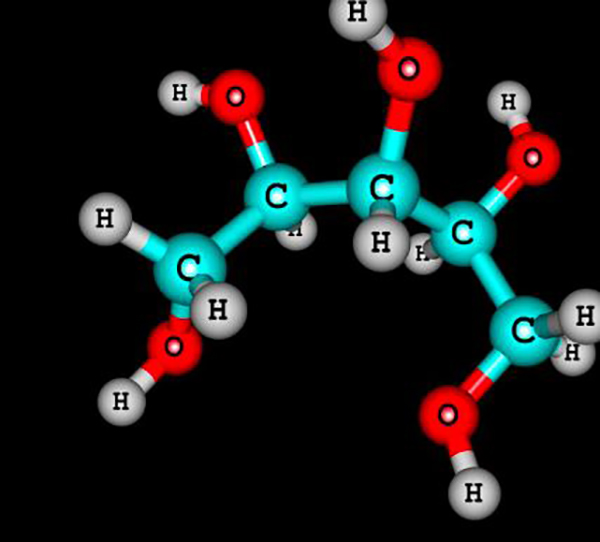XYLITOL

XYLITOL
Xylitol is an, organic sweetener, a naturally occurring five-carbon sugar alcohol present in many fruits (strawberries, plums, raspberries) and vegetables. Xylitol is commercially manufactured for use as a low calorie, sugar substitute which has additional potential health benefits including dental and obesity, xylitol also has a very low glycemic index and does not spike blood sugar or insulin levels.
Xylitol is the sugar substitute of choice for the sugarless gum industry due to superior mouth feel, menthol like cooling effect, better taste as compared to other sugar substitutes such as aspartame. It is almost as sweet as table sugar and contains approximately 40% less calories.
In addition to his use in gum and other confectionary it is also used in jams, protein powders, bars and peanut butter. The personal care industry in toothpaste and mouthwash, cosmetics creams, soaps, shampoos, lip care, lotions acting as a humectant in certain formulations. The pharmaceutical products industry in vitamins, cough syrups and other supplements.
Xylitol has potential in preventing cavities as it is not metabolized by mouth bacteria and may help in plaque buildup and remineralization of teeth through the production of saliva. There are also numerous studies investigating xylitol’s potential in providing benefits for ear infections, yeast infections. Xylitol is not readily digestible by most organisms, including human. This makes it an ideal low-calorie sweetener in stabilizing blood sugar levels.
PRODUCTION OF XYLITOL
Commercially xylitol is produced from xylan containing plant materials such as birch wood, corn cob, baggase, xylose is the main building block for the hemicellulose xylan. The majority of xylitol production is in China utilizing corn cobs. Danisco is currently the only producer utilizing wood biomass feedstock in a sulfite pulp mill process. The majority of xylitol and bio-glycol technologies cannot deliver cost-competitive, sustainable products vs other sweeteners and petrochemicals because of low efficiency, outdated, polluting processes and high feedstock costs. In conventional xylitol production, yield loss is high, so producers focus on corn cobs, which are high in hemicellulose (~40-45%) or birch tree sulphite liquors. This improves net yield, but 90% of the biomass is still wasted. High losses prevent producers from considering other potentially lower-cost sources of xylose such as other hardwoods, wheat straw, bagasse, switch grass, etc. Most pulp is used to make paper, packaging and absorbency products and hemicellulose adds little in the way of strength, but it adds bulk, so mills try to maximize retention of hemicellulose to maximize yield. However, in some cases, such as dissolving grade pulps for rayon, acetate or viscose production, all hemicellulose must be removed from the cellulose fraction. The hemicellulose is washed out in the “liquor” following cooking. Hemicellulose used to be burned, but technology is emerging to keep the C5-rich sugars separate and available for other applications.
With the acquisition of S2G Fortress intends to implement a high yield proprietary C5 and C6 sugar conversion process which maximizes the total carbon transformation of feedstock sugars into xylitol and other valuable chemicals. Fortress believes the S2G process will offer benefits over existing xylitol production processes:
Higher Yield
Lower cost feedstock
Lower environmental impact
GLOBAL XYLITOL MARKET
Xylitol Worldwide Company Market Share 2016